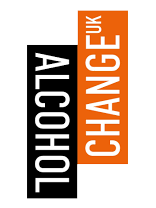Digital interventions to reduce alcohol-related harm: a rapid horizon-scanning review
A rapid horizon scanning review of the published and grey literature on digital interventions to reduce alcohol-related harm covering the period January 2017 to April 2019.
Introduction
Digital interventions are defined as those that are delivered through a computer or mobile device such as a laptop, mobile phone or tablet. For example, mobile phone text-message (SMS) interventions, computer-delivered interventions administered on fixed computers or remotely via the internet, and mobile phone applications (apps).
Although this literature has been subjected to a number of systematic and narrative reviews, this is an active research field characterised by rapid technological advances. Horizon scanning methods are needed to identify trends and notable gaps in this literature.
Project aims
We conducted a rapid horizon scanning review of the published and grey literature on digital interventions to reduce alcohol-related harm covering the period January 2017 to April 2019. We had three broad aims:
- To identify and describe innovations and newly emerging digital interventions that can be used to reduce alcohol-related harm.
- To consider how these compare with existing digital interventions.
- To identify potential gaps in the types of digital interventions that are being developed or subjected to rigorous evaluation.
Findings
- There are many randomised controlled trials of digital interventions (at least 72 published between 2017 and 2019), but relatively few studies have used other methods to evaluate those interventions.
- Populations that are most at risk of alcohol-related harm have been understudied relative to community-dwelling and student populations.
- There were notable recent trends for digital interventions to be increasingly delivered via the internet and smartphone apps, sometimes in combination with biosensors, and for interventions for delivery in clinical and primary prevention settings.
- Alcohol reduction apps available on the app stores may increasingly be using interactive features rather than simply providing information.
Key project information

This project was funded by Alcohol Change UK.
Dates
Final report July 2019
Research team
Professor Matt Field
Fiona Campbell
Dr Emma Hock
Dr Ruth Wong
Key contact
Report
The full findings of the research were published in the report Rapid Evidence Review Digital interventions to reduce alcohol-related harm: a rapid horizon scanning review which is available to download from the Alcohol Change UK website. A executive summary is also available.
You might also be interested in…
-
Professor John Holmes contributes to major new report outlining actions to tackle alcohol harm
SARG Director Professor John Holmes was part of an expert panel that supported the development of 'A Healthier Future: A long-term vision to tackle alcohol harm in the UK', a significant new report published by the Institute of Alcohol Studies (IAS) this week.
-
Local alcohol treatment and recovery service commissioning practices and their perceived outcomes for service provision: An in-depth exploration
This project examined the experience of alcohol service commissioning processes at a local authority level in five diverse localities.
-
Increase in alcohol deaths in England an 'acute crisis'
The persistent higher rate of alcohol deaths in England since the pandemic in 2020 is an 'acute crisis' requiring urgent action from government, according to a new study led by researchers from University College London and the Sheffield Addictions Research Group.
